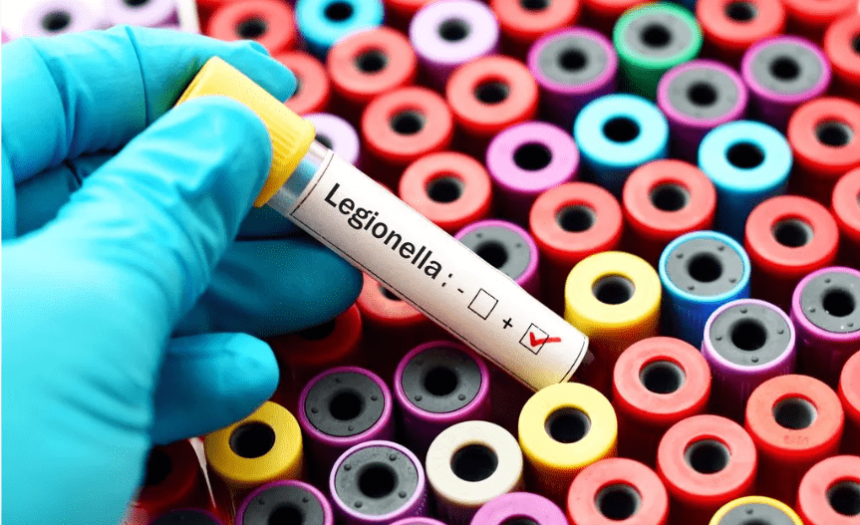Kensington and Chelsea Council is facing scrutiny after it emerged staff were not informed about the presence of legionella bacteria in showers at Kensington Town Hall for several months.
The council justified the decision by stating that such findings are “not uncommon” in large buildings and posed a “very low risk.”
But staff insiders have hit back, accusing the council of failing to take the issue seriously and keeping employees in the dark, which may have led some to unknowingly use contaminated facilities.
Legionella Found, But No Warning
Between February and June this year, legionella bacteria were detected in the water system at the Town Hall on Horton Street, according to internal council emails obtained via Freedom of Information requests.
Though the contaminated showers and facilities were locked, multiple sources claim that staff continued to access them due to the lack of a clear warning about the risk.
“Every day, people were breaking into the showers. People saw ‘Out of order’ signs, but because they didn’t mention there was legionella, they just broke in and used the showers. They were potentially exposing themselves to something harmful,” said one insider.
The council insists no staff contracted Legionnaire’s disease and argues the health risk remained low. But internal messages suggest senior officials were more concerned about optics than transparency.
Showers marked ‘out of order’ at Kensington Town Hall were still used by unaware staff, exposing them to potential health risks. Insiders say clearer warnings could have stopped it.
‘Don’t Mention Legionella’ Internal Emails Reveal Strategy
Emails reviewed by the Local Democracy Reporting Service (LDRS) reveal the extent of internal discussions. On February 26, the council’s Executive Director of Housing and Social Investment, Dan Hawthorn, recommended wording in staff bulletins to avoid using the word “legionella”.
In brackets, he added: “Though perhaps just say we are doing some work to the water system.”
An earlier test conducted on February 7 found higher-than-normal legionella levels, prompting a chlorination process. However, results confirmed the bacteria’s presence in the staff changing room and Freeman suite showers days later. The affected areas were sealed, yet many staff reportedly remained unaware of the reason.
The lack of clear communication, combined with a delay in follow-up flush-outs due to an awards ceremony at the Town Hall, has triggered further backlash from staff sources.
One added: “They [the council] don’t really care. They’re always in damage control… It’s all about the reputation and protecting it.”
Calls for Full Water System Overhaul as Problems Persist
According to insiders, the Legionella issues are far from isolated. Sources claim that rusting pipes—referred to as “pipping”—are behind the recurring contamination and suggest the entire system inside Kensington Town Hall needs replacing.
“Kensington Town Hall has a huge legionella problem… I said, ‘Maybe we should tell people.’ They said, ‘No, no, no, we can’t tell people that – it’s contained in some of the showers.’”
The LDRS also confirmed that Legionella was detected at nearby Niddry Lodge and flats adjacent to the Town Hall.
Staff concerns go beyond the bacteria itself, focusing instead on the lack of accountability. A review of water safety arrangements, recommended in August 2024, was delayed due to changes in the Health and Safety team—further fuelling criticism that the issue hasn’t been treated with sufficient urgency.
Council Defends Its Position
In response to the backlash, Kensington and Chelsea Council maintains it followed all appropriate procedures.
A spokesperson said: “Positive legionella samples are not uncommon in large and complex buildings such as Kensington Town Hall, and most cases present very low risk, which was the professional advice received in this case.”
They stressed that remedial actions, including chlorination and replacement of components, were carried out promptly, and alternative facilities were made available.
“We are investing in upgrades to our systems and will continue to rigorously monitor water quality to ensure the safety of everyone who uses the building.”
Despite the council’s reassurances, the incident has left many questioning whether reputational concerns took priority over staff wellbeing and whether more transparency could have prevented unnecessary risk.
While no one fell ill, the handling of the Legionella issue at Kensington Town Hall paints a troubling picture.
Staff say they were left guessing, relying on vague signs and silence from management. In a building meant to serve the public, questions remain about who the council is truly protecting its employees or its image?






